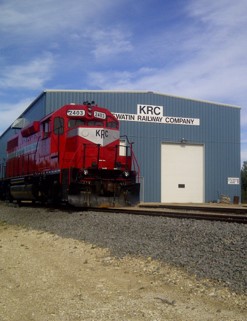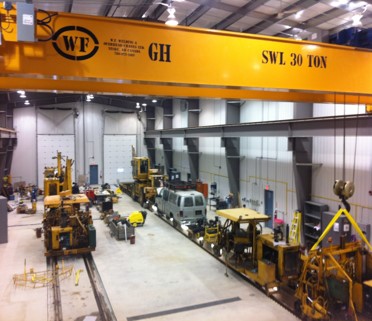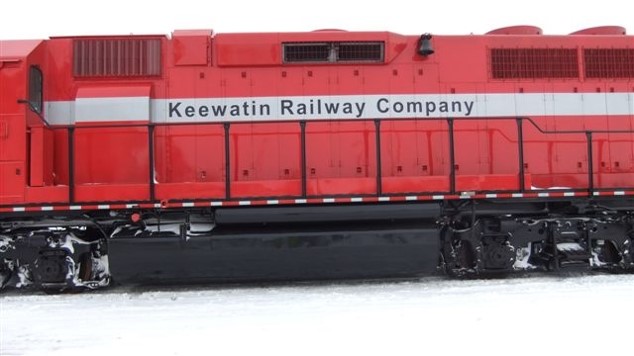Member Profile | Keewatin Railway Company
Posted on“Realize that we as human beings have been put on this earth for only a short time and that we must use this time to gain wisdom, knowledge, respect and the understanding for all human beings since we are all relatives.” – Cree proverb
Keewatin Railway Company (KRC) recently marked a milestone anniversary.
Fifteen years ago, in the spring of 2006, KRC began operations as a lifeline to several northern Manitoba communities that both built and relied upon rail, and whose futures were very uncertain in the time leading up to KRC’s creation.
Following the closure of a mine at Lynn Lake three years earlier, Denver-based Omnitrax (owner of the Hudson Bay Railway – HBR) announced it would abandon HBR’s Sherridon Line. The 200-mile track was the only all-season access to communities along it, including Pukatawagan.
“Punkatawagan would have been severely hampered getting stuff in. They wouldn’t be able to build anything,” recalls KRC CEO Anthony (Tony) Mayham. “Winter roads now only open for a month per year and there are weight limits. And air is cost prohibitive.”
Local First Nations leaders banded together to create Canada’s second Indigenous-owned-and-operated railway. Late Chief Norman Flett approached Mayham, whose background is in finance, to help make it happen.
After nearly a year of negotiations with HBR, VIA Rail, the province of Manitoba, the federal government, and other stakeholders, KRC did its first-ever run.
It has since grown from five employees to more than 34 in peak season. It still does a mix of freight and passenger service. And it has also branched out in track and other maintenance.

Mayham says rail remains “one of the few sources of income” for local residents. And 70% of KRC employees are Indigenous. Their connection to the area is both personal and a source of pride.
When a nearby rail line serving Churchill (also owned by Omnitrax) washed out in 2017, KRC employees were among the first to say they could help rebuild it – and do so much more quickly than the many months or year that some were predicting.
Says Mayham: “KRC said we could get it done in roughly 60 days. We contracted with Cando and Paradox. And our guys worked flat out. They got it done in 62.”
KRC has indeed made a name for itself – to the point where Mayham says other First Nations come calling for advice on how to make similar connections a reality for their communities.
“It’s a really good model. We have shared our knowledge, experience, and expertise. And we are open to doing that kind of consultation.”

On the immediate horizon, KRC is trying to secure new passenger coaches to replace ones that have been running since the late 1950s. KRC may also play an important role in the opening of a new mine.
“First Nations take pride in this railway because we helped build it. We are continuing on that legacy,” says Mayham.
For more on KRC and its operations, visit https://www.krcrail.ca/